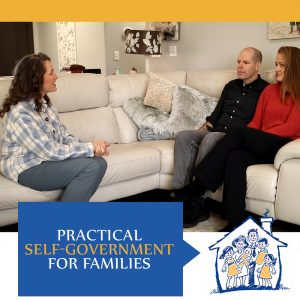Can Spanking Be Okay Sometimes?
“Nicholeen, what do you think about spanking? Can it ever be okay? When I was a child in the early 1900s everyone was spanking. My mother always did it out of love. We never questioned her love for one minute. She was a great parent and when we were naughty, we knew we deserved it. Is it really bad to spank? I know many people still do?”
The topic of spanking has been a hot topic now for many years. In fact, during my whole lifetime people have been trying to determine if spanking is really the best way to discipline children or not. There is no question that spanking used to be a very popular form of correcting negative childhood behaviors and it was seen as acceptable and positive. Why?
Until recent years the most common book in the world was the Bible. Now the most common educational reference is the media. The Holy Bible contains verses that talk about disciplining children and about how children should honor their parents. These gospel words have led parents in their parenting choices since very early times.
What Does The Bible Say About Spanking?
Bible verses in the book of Proverbs that have been interpreted to be in favor of spanking children:
1. Proverbs 13:24 says, “He that spareth his rod hateth his son: but he that loveth him chastenth him betimes.”
2. Proverbs 29:15 says, “The rod and reproof give wisdom: but a child left to himself bringeth his mother to shame.”
3. Proverbs 23:13-14 says, “Withhold not correction from a child: for if thou beatest him with the rod, he shall not die. Thou shalt beat him with the rod, and shalt deliver his soul from hell.”
These verses have been interpreted many ways. Most people interpret them to mean that children need to be hit with branches, sticks, and reeds, which is one definition of the Hebrew word “shebet” interpreted means “rod.” However, the word shebet has also been interpreted to mean authority, clan or tribe, and has been known to mean God’s authority as well.
Due to the poetic nature of the book of Proverbs and the multiple interpretations of the word “rod” some people think that the term means something metaphorical; such as to use the scriptures to reproof or teach children, or that parents need to remember to exercise their authority over the children in order to help the children have a proper upbringing. Sometimes the truth can sting like a rod might hurt the flesh. So children would not die from the pain of truth. However, there have been cases when parents have beat their children to death with rods and reeds, so it appears that Proverbs 23:13-14 cannot mean to literally beat a child with a rod.
A few other Bible verses that give further understanding to parents about disciplining children:
1. Hebrews 12: 6-11 talks about the importance of chastening. Specifically verse eleven says, “Now no chastening for the present seemeth to be joyous, but grievous: nevertheless afterward it yieldeth the peaceable fruit of righteousness unto them which are exercised thereby.”
2. Ephesians 6:4 says, “Now, ye fathers, provoke not your children to wrath: but bring them up in the nurture and admonition of the Lord.”
3. Colossians 3:21 says, “Fathers, provoke not your children to anger, lest they be discouraged.”
4. 2Timothy 3:16 says, “All scripture is given by the inspiration of God, and is profitable for doctrine, for reproof, for correction, for instruction in righteousness.”
This second sampling of Bible verses instructs parents to be calm but firm in correcting and instructing children. They tell parents not to be angry or aggressive, but to use words of truth and reproof. In Hebrews it even says that correction should lead to more peace in the family. These verses suggest that parents are to love and rear their children in righteousness and without any anger.
Can A Spanking Be Given Without Anger?
Yes. After my friend asked me the question at the top if this article he went on to explain how his mother never spanked him in anger or out of anger but simply used it as her negative consequence and administered it with firmness but lovingly.
One of my favorite books by Ralph Moody, “Little Britches: Father and I Were Ranchers”, a true story of a family living in the west during the late 1800s, shares an experience when Ralph stole from the family and needed a consequence. The reader clearly sees that Father doesn’t want to spank Ralph, but that that was the negative consequence the family had designed for instances like stealing. Father lovingly tells Ralph he must spank him because of his actions and then they deliberately go to the barn and Father administers Ralph’s spanking. Ralph sees tears in his father’s eyes.
I think that most parents of the past who used spankings tried to do them like young Ralph’s father. They hated to do it, but saw no other way. They felt they needed to use the rod like Proverbs instructed and use the loving spirit from the teachings of the New Testament as well.
Should Spanking Be Used Today?
I always say that a loving spanking is better than not correcting behavior problems or corrupted hearts at all, but I have found there is an even better way to teach cause and effect. The method I am referring to uses the metaphorical interpretations of the scriptures in Proverbs, meaning that the parent knows they have the authority from God and stewardship to teach the children and that they must act on that. This method also instructs with love and gentleness, but with firmness and consequence as well. The reproofs, or consequences, can seem hard sometimes but the self-government structure and tone of love in the home always lead to more freedom and joy.
Since I have many articles and books dedicated to how self-government can be taught with firmness and love I am not going to go into details about that here, but I will discuss in detail why spankings can’t be used effectively today, and even why they could be dangerous to use today.
Why Shouldn’t Children Be Spanked? 6 Reasons:
-
Most people don’t base their actions on gospel principles anymore. Let’s face it, we live in a time when following your feelings has been ingrained in us. We think that if we feel something we must be honest to our feelings and act on them. People who followed God’s word in generations past felt that the first thing they must do was learn how to stop themselves from emotionally reacting. This principle of self-government was most desired by all, because it was understood that the most powerful servants of God first learned how to put God’s will above their own desires. And, God wills us all to love with calmness and to teach accurately the truths needed to be learned; no matter our personal feelings. The world has a more Godless mindset than it used to. This has led us to be more out of control than we used to be as parents, too.
-
Due to lack of self-control, spanking can be and often is done out of anger. When a parent spanks a child out of anger and emotion the parent has not practiced justice; they have just been emotional. These all to common emotional spankings are signs of parent weakness and disconnection from principles of discipline.
There are now countless reports of parents taking spanking too far and damaging the bodies of children out of anger. These out-of-control parents have made it difficult for a truly principled spanking parent to openly and safely continue to use spanking as a negative consequence. The practice is generally frowned upon due to some horror stories about spanking leading to severe abuse.
I will never be okay with the government getting into families’ lives and telling parents what they can and cannot do. But, the smacking videos do prove there is a problem in many homes with out-of-control parents beating children unnecessarily. Family relationships are not safe when spanking, or smacking, happens like this.
-
Spanking the body is an insult to the gifts God has given us. If we believe that God gave us everything, then we have to acknowledge that our very bodies are the most important gift we have been personally given. When a parent spanks the body of a child they are disregarding the spiritual nature of the body and are also putting their ideas about the body’s treatment above the doctrine of the Lord.
-
Spanking increases fear and anxiety in the hearts and minds of children and disconnects the parent from the child. Proper discipline should turn the hearts of the children to the parents, and the hearts of the parents toward the children. It is possible to feel more connected to each other after and during being corrected than parents and children felt before the discipline was presented.
-
The world has been groomed to think of spanking is abuse. The United Nations signed a document in 1989 declaring that children all over the world have the same 45 rights. These rights include things like the right to play and the right to freedom from punishment. The document also says that every child has the right not to be abused, but abuse isn’t really spelled out which leaves the definition about abuse vague and dangerous to interpret.
I could go into great detail about the social dangers of a country following this CRC document, but will stick to the topic of punishment for now. Luckily the United States has not ratified this document as law, so many of the absurd rights that would destroy the role of parents and make the government the parent are not really enforceable. However, these false rights are being taught to teachers and in schools as well as to government agencies as real rights even though they are not really law.
So, now days if a parent spanks a child it is likely that the child will have been taught by their school that this is abuse. This teaching encourages children to tell on their parents or to report their parents to authorities even when the spanking was going to be done with love and calmness. Since there are people telling children what is right and wrong instead of parents being the authority on what is right and wrong parents have just cause to abandon spanking as an acceptable parenting practice to protect their families from government intrusion.
-
Most Important: The child doesn’t have to accept his consequence if spanking is used. When a spanking is given, a child doesn’t have to do anything to show that he is able to take ownership of his actions, or to show that he has had a change of heart. What good are consequences if the child’s heart remains hard and disconnected from the truth? The scriptures listed above say that the purpose of correcting children is to bring them to righteousness. If the spanking is done and the child doesn’t want righteousness, what then? How can a parent help the child have a change of heart. Calmness, the voice of truth, must be reached before any effective teaching can occur. Achieving calmness is the purpose of the Rule of Three that I teach in my book Parenting A House United.
I will never forget a time I was visiting a home for the purpose of teaching the family self-government skills and principles. The parents, who had once been hitters and spankers, had made the shift to calm, firm self-government parenting. Their thirteen year old son was “out of instructional control” and the father was calmly going through the Rule of Three to help the son become calm and ready to receive his negative consequence. Then the son said, “Just hit me Dad. It would be quicker. Just hit me.”
I loved this great moment for this reformed father. He saw clearly that his son used the previous beatings as a way of not taking responsibility for his actions. He also clearly saw that the child didn’t have to accept the consequence or become calm for a beating to occur. When he did those beatings he was denying his child the opportunity to accept his consequence as something he earned. For justice to be completely effective the guilty must acknowledge his wrong-doing. I know this sounds impossible to happen with children, but it isn’t. In fact, I have seen many many children happily acknowledge their wrongs and willfully accomplish their negative consequences after a true change of heart and connection to parents.
The Short Answer To Why Is Spanking Bad
My friend’s question was “Is spanking ever okay?” It used to be acceptable, but there is a better way to apply the principle of using the rod and the principle of reproofing with love. That better way is legal and is good for character development and a change of heart. It is firm and compassionate, as well as unifying and respectful. I call this parenting style Teaching Self-Government.
Learn how to teach your children self-government here!






